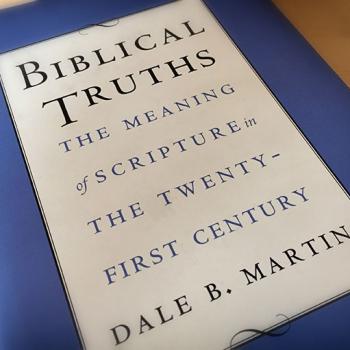This guest post was written by Allison Lynch.

I’m anticipating a lot of people will read the title of this article without clicking on it and think to themselves, “What are you talking about? I’m a Progressive Christian–that’s why I follow this page!” *Proceeds to write offended comment on Facebook post*
Or, if you’re reading right now, then I assume my headline has interested you enough to click on the piece, and hopefully you’ve waited to make any judgments about the statement.
Hear me out.
Growing up in a Christian home, I never questioned not being a Christian. I felt so lucky to be born into a home of believers who attended church every single Sunday; I basically came out of the womb with a punched ticket to Heaven. Others weren’t so lucky and had to find Christ on their own.
So when I found myself in my twenties despising most aspects of Western Christianity and attending church in spotty bouts fueled by guilt, I wasn’t really sure what to call myself anymore. The term “Progressive Christian” seemed most fitting, because it gave me enough wiggle room among my non-Christian peers for them to believe I was open to new ideas, and it allowed me to stay within certain Christian circles without being thought of as a project to work on.
Today, I try not to identify with anything to define my faith. For most Christians, that’s a hard pill to swallow. Jesus is supposed to be the only thing in life that gives you purpose and security, so if you’re not a Christian, then what are you?
Here’s where the term “Progressive Christian” becomes a little shaky. It’s a safe label for Christians who aren’t willing to give up their faith or explore new faiths, but who also want to appear tolerant and intellectually enlightened. In a way, Progressive Christianity allows people to choose what they want to believe in the Bible, and to be evasive when it comes down to what the Bible actually says.
For example: trying to defend the Bible’s stance on homosexuality. Yes, it’s true that Jesus did not condemn it. Yes, only six verses explicitly mention same-sex relations. But there’s no getting around the fact that the Bible calls it “an abomination,” just as there’s no getting around Paul telling wives they need to be submissive to their husbands. Or trying to undermine a giant flood logged as a historical event. It’s just what the Bible says. Analyze it, pick it apart, review the various translations and iterations, but face it: a lot of what the Bible says is just plain outdated or scientifically incorrect, and we know it.
While viewing the Bible through a progressive lens allows us to dissect the cultural and historical contexts of Scripture for better understanding, it ultimately frames the “truths” of Christianity as merely a house of cards. We cannot claim Christianity as the “one true religion” anymore if Scripture is refuted. We cannot confirm that all of the miracles it describes truly happened when we know the earth is a lot older than a couple thousand years. We were not there, we did not write it, and if we are disagreeing with the only text that’s supposed to “guide our paths,” then what are we doing trying to find our identity in it?
Christians, please stop saying you’re “progressive,” when what you really mean is, “I’m too scared to let go of my faith even though I’m questioning everything I was taught to believe.” To me, Progressive Christianity is merely a symbol for the decline of religion in the Western world. The numbers of believers are dwindling. People want answers, but they want them outside of a chapel and beyond the pages of a leather-bound, monogrammed Bible. They want something real.
If you are truly progressive in your Christian faith, you recognize that there are other ways to know God, because you’ve opened your eyes enough to see this on a regular basis. You have seen peoples’ hearts, despite what their outward religious (or nonreligious) label implies. If you are rigid in your beliefs and are too afraid to entertain the fruitfulness of humanity beyond the walls of Evangelicalism, then I have to tell you something: you are missing out.
So, if you’re not a fundamentalist Christian, what are you? How about calling yourself a human being? I think that puts us all on an equal playing field as we navigate this strange, sometimes tragic, sometimes humorous thing called life. And if you prefer to be a Progressive Christian, embrace it fully and continue along the path of exploring what that really means.
 About Allison Lynch
About Allison Lynch
Allison Lynch is a twenty-something who lives and works in Boston as a marketing communications professional in the health & fitness industry. When she’s not writing, she’s either training for her next competitive running event, or volunteering at the House Rabbit Network, a shelter for abandoned, domestic rabbits. Her goal in life is to use writing and art as ways to connect with others, and to help women feel empowered through the strength and beauty of their unique bodies.
Author photo by Shef Reynolds / Article photo via Pixabay, edited by Dan Wilkinson












